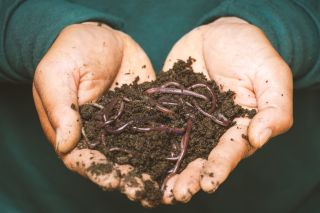Emotions
Negative Emotions Aren't the Weeds
It's time to rethink the metaphor we use to talk about bad feelings.
Posted October 31, 2023 Reviewed by Abigail Fagan
Key points
- We tend to treat negative emotions like the weeds in a garden; we have to dig them up before they ruin it.
- Negative emotions and positive emotions play the same role in our lives.
- Emotions are ways of caring about things, and we feel bad feelings because our lives matter to us.
Imagine you have a garden. It’s lush and green with beautiful flowers, and like all gardens, it requires tending. You go out dutifully to do the necessary work, but every day, there they are: the weeds. You try to get rid of them, but they never seem to stay gone for good. Sometimes you successfully pull them up, but new ones always appear in their place. In the hot, sticky stretches of summer, you might go a few days without tending. When you go back outside, the weeds have gotten worse. That’s what weeds do: they take over and spoil gardens.
The garden is a metaphor for your life and negative emotions—feelings like anger, envy, spite, and contempt—are the weeds. If we don’t do something about them, they’ll choke out the nice plants and flowers.
You may not be able to get rid of them completely, but you’re supposed to battle them as best you can. Maybe you try to keep them small and manageable or maybe you douse them with the strongest weed killer you can buy. No matter what strategy you use, your relationship to the weeds is always the same. Weeds are things to get rid of or control. A good garden doesn’t have any weeds and a good life is one with no (or at least fewer) bad feelings.
I think we need to change this metaphor. Bad feelings are the worms, not the weeds. They’re just below the surface, and if you dig around even a little bit, you’ll see them—slimy and crawly, churning in the dirt. Worms make most people squeamish. Many of us would rather just admire the flowers and forget the worms are there.

But that would be a mistake. Worms are as much a part of the garden as the flowers and their presence means your garden is thriving. Wishing away your worms is wishing away the richness and texture of the garden itself. So, if you want to keep your garden as lovely as it is, you had better figure out how to embrace the wriggly inhabitants.
What Do Emotions Do?
Changing how we think about negative emotions means understanding the role they play in our lives. All emotions—positive and negative—tell you things about the world. Think of them like a sixth sense (not the paranormal kind). Your five senses can tell you that you’re on a walk in the woods. You see the trees, hear the birds, and smell the earthiness of the fallen leaves. Your emotions tell you that the walk is serene, lonely, or creepy. Emotions tell us things about what’s happening around us, about our relations with other people, and about our own sense of who we are.
Emotions are reflections of what we care about or what matters to us. To use myself as an example, philosophy is one of my commitments—it matters to me. Because I care about it, I’m susceptible to a whole set of emotions about it. I feel joy when I get to read a philosophy book, I feel anger when people say bad things about philosophy, and I feel disappointed when my students don’t like the books I assign in class. I wouldn’t feel joy, anger, or disappointment if I didn’t care. Feeling about something is a way of caring about it.
Negative Emotions Are Ways of Caring About Yourself
Our bad feelings are expressions of our self-love—they show up because we are invested in our lives and ourselves. Caring about yourself means valuing your life, your personal history, your hopes and dreams, and your voice in the world that belongs to you and no one else. You matter to you.
When we think about what it means to care about something, we usually associate it only with positive emotions. We describe a caring person, for example, as kind, compassionate, and sympathetic. But caring about something doesn’t just mean feeling tenderly towards it. Caring means being invested in something and allowing it to occupy a central place in your thoughts and concerns.
Think of how we care for other people. You’re invested in their future, their welfare, and their growth. The care you have for a loved one is expressed through a huge range of emotions. Of course, love, compassion, and sympathy will be among them, but so will anger, disappointment, and grief. Care manifests itself in all our emotions. It is as present in our compassion and sympathy as it is in our anger and grief.
Your bad feelings are in your life because you care about it and that’s exactly how it should be. Trying to get rid of them or push them away is a mistake—you need them. Life is meaningful because they are in it. Your attachment to your life is one of the most important parts of a garden: the dirt. If the dirt isn’t rich enough, nothing will grow. And good dirt is full of worms.
The material for this post is adapted from Dancing with the Devil: Why Bad Feelings Make Life Good (Oxford University Press, 2023).




